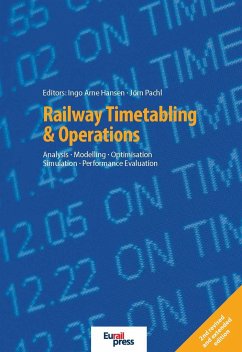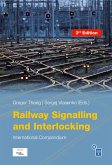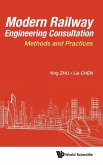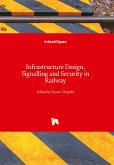The performance of many railway networks and the quality of service offered is becoming more and more critical. The main issues to be addressed are the increasing traffic volumes and making the best use of the available capacity, at the same time resolving train scheduling and management problems. This is an updated, revised and extended edition of 'Railway Timetable & Traffic', published in 2008. It describes the state-of-the-art methods of railway timetabling and optimisation, capacity estimation, train operations analysis and modelling, simulation, rescheduling and performance assessment. The intention is to stimulate their broader application in practice and to highlight current and future research areas. It is directed at academics, Masters and PhD students, as well as professionals from the railway industry. It will also be of interest to the public authorities that tender, monitor and perhaps fund railway service provision. The overall aim is to improve the attractiveness and efficiency of the train services which can be offered to the public. The key to achieving a higher efficiency and quality of train operations is an awareness of the impact of availability, reliability and robustness of the subsystems on train processes. A deeper insight into the probability of incidents and the propagation of train delays depends on a thorough analysis of real world railway operations and the feedback obtainable. This leads to an optimisation of the timetable and a network-wide improvement in traffic management performance. This know-how should increase the efficiency of the railway system, making it more attractive for regular, occasional and new customers, and ensure that the railways continue to innovate. They will then be able to make the maximum contribution possible to the transport needs of the future.
Hinweis: Dieser Artikel kann nur an eine deutsche Lieferadresse ausgeliefert werden.
Hinweis: Dieser Artikel kann nur an eine deutsche Lieferadresse ausgeliefert werden.








